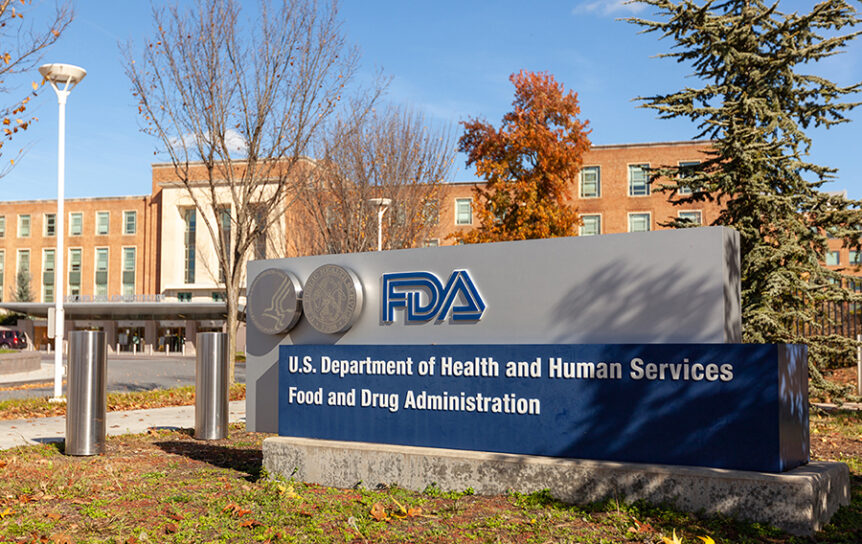RE: FDA-2022-N-0691
Estimado Comité Asesor de la FDA:
Le escribimos para expresar nuestro firme apoyo a la aprobación de tofersen bajo el Programa de Aprobación Acelerada de la FDA. Nuestra organización tiene una larga trayectoria en la investigación científica del SOD1-ELA y una amplia experiencia en el apoyo a las personas afectadas por esta forma de la enfermedad, lo que nos brinda una perspectiva única sobre la urgente e insatisfecha necesidad de este tratamiento.
Fundada en 1977, la Fundación Les Turner ALS es la organización independiente más antigua dedicada a la ELA en el país. Nuestra misión es proporcionar la atención y el apoyo más completos a las personas que viven con ELA y a sus familias, además de avanzar en la investigación científica para la prevención, el tratamiento y la cura de la enfermedad.
En 1993, el SOD1 fue co-descubierto por el Dr. Teepu Siddique en el Centro Les Turner ALS en Northwestern Medicine, lo que marcó el hallazgo de la primera causa genética identificada para la ELA. Desde entonces, investigaciones adicionales en nuestro centro han llevado a descubrimientos sobre la genética molecular de la ELA y han impulsado estudios pioneros sobre el papel de las neuronas motoras superiores, células madre y otros factores clave en la enfermedad, investigaciones que continúan hasta hoy.
Nuestra organización mantiene un compromiso activo tanto en la investigación del SOD1-ELA como en la atención a los pacientes que viven con esta forma de la enfermedad. La Lois Insolia ALS Clinic, parte del Centro Les Turner ALS, fue un sitio de prueba para el ensayo clínico de fase 3 VALOR de tofersen y su extensión de etiqueta abierta. La Dra. Senda Ajroud-Driss, directora de la clínica y profesora asociada de neurología en la Escuela de Medicina Feinberg de la Universidad Northwestern, fue investigadora en este ensayo.
El Programa de Aprobación Acelerada de la FDA permite la aprobación anticipada de medicamentos para enfermedades graves y con necesidades no satisfechas. En estos casos, se requiere que el solicitante del tratamiento identifique un indicador razonablemente probable de beneficio clínico para los pacientes. En el caso de tofersen, los estudios sugieren que la reducción de los niveles de neurofilamentos está correlacionada con una progresión más lenta de la enfermedad.
Hemos seguido de cerca los ensayos clínicos de tofersen y nos alientan los resultados que indican que un inicio temprano y un uso prolongado del medicamento pueden contribuir a estabilizar la fuerza muscular, la función respiratoria y la calidad de vida de los pacientes.
La necesidad de este tratamiento es urgente y aún no satisfecha. La progresión del SOD1-ELA varía de persona a persona. Un estudio de 2017 publicado en el Journal of Neurology, Neurosurgery, and Psychiatry informó que la mediana de supervivencia es de 2.7 años, y para aquellos con la mutación A4V, de progresión más rápida, la supervivencia media es de solo 1.2 años. Actualmente, no existe un tratamiento aprobado por la FDA que aborde el SOD1-ELA ni ninguna otra causa genética de la enfermedad. Toffersen sería el primero.
Nuestros coordinadores de servicios de apoyo han trabajado con múltiples generaciones de familias afectadas por el SOD1-ELA. Cuando una persona es diagnosticada con una forma genética de ELA, el impacto es devastador y afecta a generaciones enteras. No solo deben enfrentar los desafíos del cuidado de un ser querido con una enfermedad incapacitante, sino que también deben vivir con el temor de que ellos mismos, o sus hijos, puedan ser diagnosticados en el futuro.
Hemos visto familias en las que varios miembros han sido diagnosticados con SOD1-ELA, cada uno enfrentando sus propios desafíos. Hemos brindado apoyo a personas que han perdido tanto a un cónyuge como a un hijo a causa de la enfermedad. Hemos prestado una silla de ruedas a un hermano y, años después, la misma silla a su hermano menor. Uno de nuestros coordinadores ha acompañado a niños que cuidaban de su padre y, quince años después, ha proporcionado apoyo a esos mismos niños convertidos en adultos.
Desde nuestra experiencia de primera mano, podemos afirmar que el trauma emocional para estas familias es abrumador. Brindamos asesoramiento a las personas que viven con la enfermedad y a sus familiares a través de grupos de apoyo. El asesoramiento y las pruebas genéticas son herramientas informativas esenciales, y nuestra organización se esfuerza por hacerlas accesibles a todas las personas afectadas, sin importar su historial familiar o manifestación clínica.
Sin embargo, las personas que viven con SOD1-ELA necesitan más que información. Necesitan tiempo. Necesitan la oportunidad de compartir más momentos con sus seres queridos. Necesitan la esperanza de que la experiencia de la próxima generación con esta enfermedad será diferente.
Nada significaría más para estas familias que contar con la primera terapia capaz de ralentizar la progresión del SOD1-ELA. Para un padre, saber que si su hijo es diagnosticado en el futuro, un inicio temprano y un uso prolongado de tofersen podría brindarle una vida más larga, plena y significativa es invaluable.
Esperamos el día en que una persona reciba su resultado de laboratorio de SOD1, junto con una receta para tofersen y una nueva esperanza para el futuro.
Estamos convencidos de que tofersen representa un avance significativo en el tratamiento del SOD1-ELA. La necesidad es urgente y no satisfecha, y la evidencia es contundente. Instamos a la FDA a recomendar la aprobación acelerada de tofersen y a brindar esperanza a estas familias y a sus futuras generaciones.
Atentamente,
Andrea Pauls Backman
Directora Ejecutiva
Les Turner ALS Foundation
Lauren Webb
Directora de Defensa y Difusión
Les Turner ALS Foundation
Como organización sin fines de lucro dedicada a la defensa de los derechos de las personas con ELA, recibimos menos del 5% de nuestros fondos anuales de Biogen, así como de otras compañías farmacéuticas.


